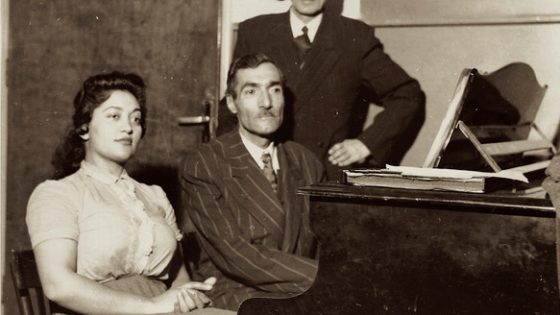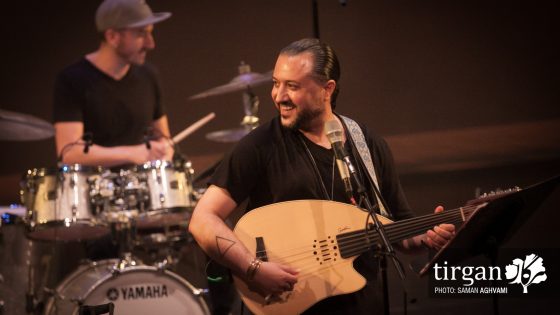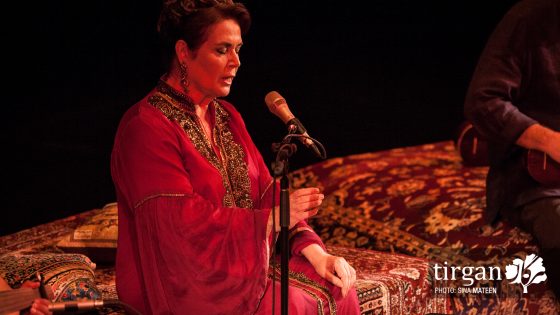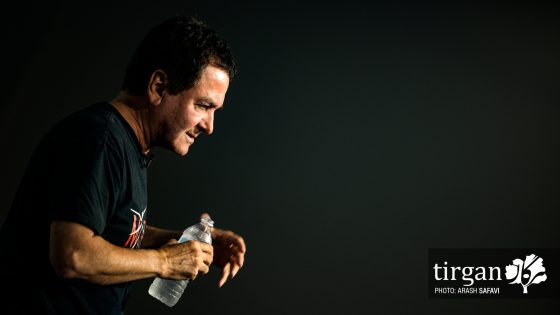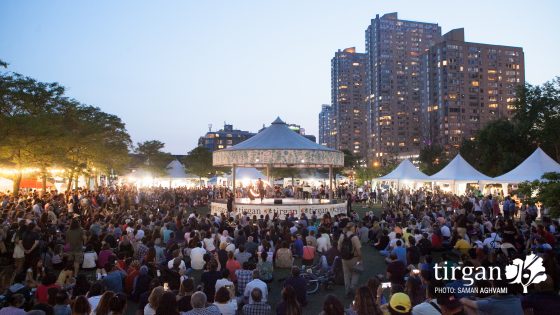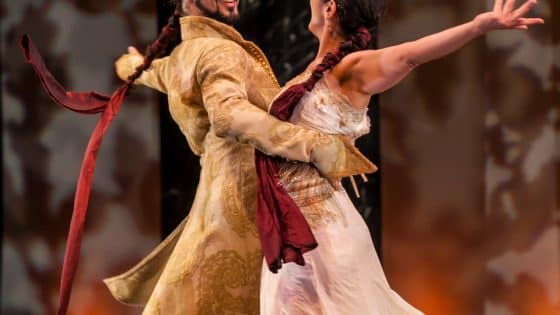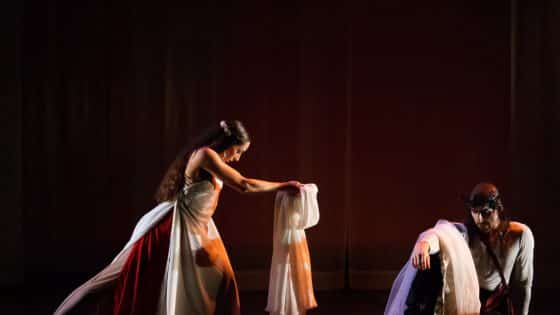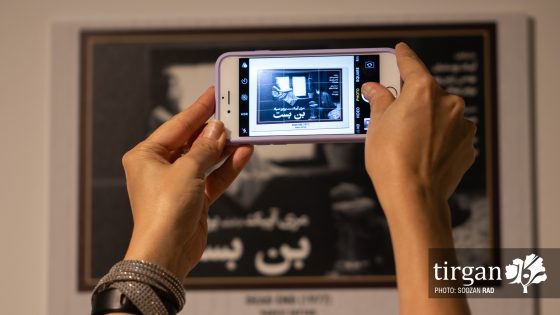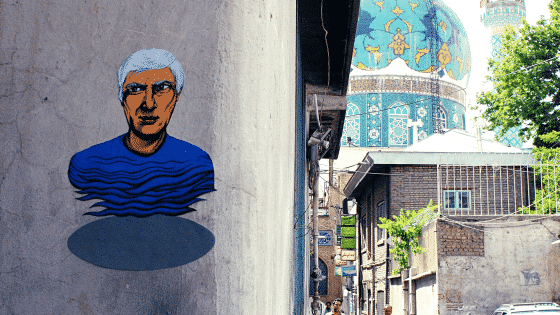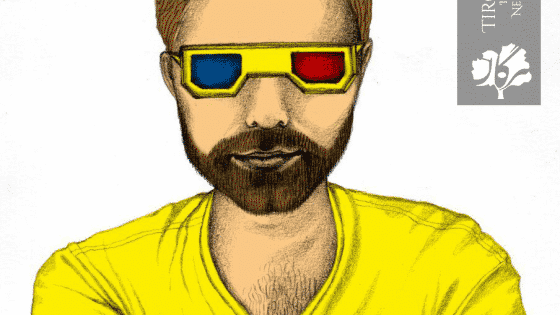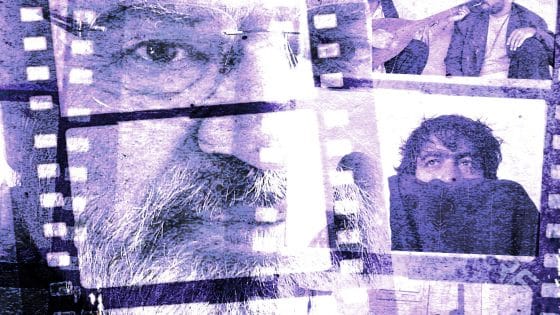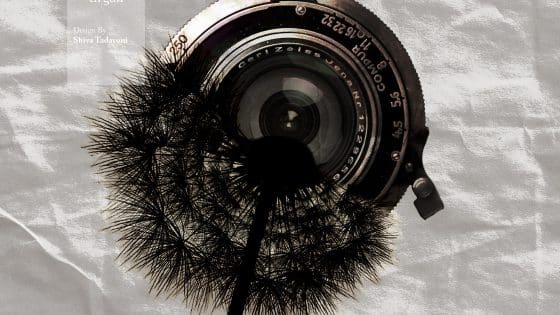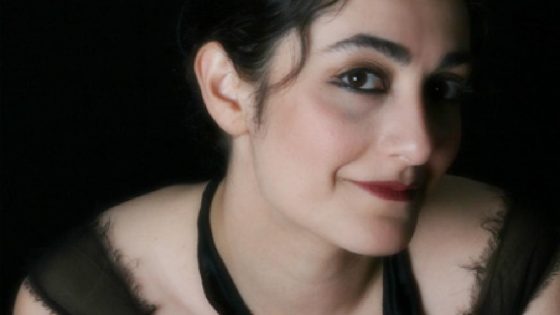Your first appearance in film was alongside your son in Abbas Kiasotami’s film Ten (2002). How did this come about? Was this also your first acting experience?
Before turning to cinema, I was focused on painting: on experimenting with forms, colours, patterns, structures and harmony. I found this medium to be limited. I felt that I wanted to express more thoughts, emotions and protests than I could on canvas. I’m a storyteller, and I wanted to share my stories aloud and with everyone. I found a much more suitable medium in cinema. My first foray into cinema was as an assistant director on a documentary called The Old Man of Harra (2001), alongside Mahvash Sheikholeslami (an Iranian director). When I appeared as a version of myself in the film Ten (2002), I had no experience in acting. This film depicts real events in my life, and my relationship with my son Amin. It revolves around the problems and the status of a modern woman in Iran today; a woman who desires to explore other dimensions of her own being. However, she is caught between the contradictions of tradition and modernity. As a mother and a wife, she is struggling with these contradictions: the expectations of society one the hand, and her personal beliefs on the other. Her beliefs conflict with these expectations about her gender role as a woman.
What drew you to filmmaking? Was it a desire to give expression to certain social concerns, or was there more to it?
I hate cinema that confronts me as something ‘larger than life’. I try to avoid the kind of cinema that patronizes me and assumes that I’ll receive its values and content just because it appears on a large on screen; the kind of cinema that indulges in dishonest drama and excitement. I see the camera as a small box that registers my moments and stories. And this small box is a reliable friend that has the ability to deliver the meanings and concepts of life to passionate audiences. I don’t approach cinema itself as the objective. It’s just a medium—a tool—to convey deeper reflections and meanings in a life that can be full of boredom.
Your first film, 20 Fingers (2004), was a very frank take on Iranian social norms concerning gender roles and the tensions that inhere to them. What were the challenges in making such a film?
My exile didn’t happen over a night. It was a lengthy, tiring and truly destructive process that began when the Iranian intelligence services targeted me following this film. My first ‘offence’ was being a woman. The second was my refusal to compromise my beliefs and adhere to their ideology. I made 20 Fingers without the necessary permissions. It was screened internationally without the consent of the Iranian government. I believe that even the most powerful ideology can’t restrict art, and that artistic expression will eventually find a path to its audiences.
Your documentary film, 10+4 (2007), focuses on your personal experience with cancer. What’s behind the title? And what motivated you to make such a film?
This is a documentary about my struggle with cancer. The motivation behind it was largely therapeutic. It was also an attempt to create something out of a devastating experience; to create life out of death. I chose the name “10+4” because I regard it as the continuation of the film Ten: now it’s four years later and the same character, with all her wild dreams and aspirations, is facing with a new challenge by dealing with a life or death situation.
Your film 1+2+1 is about a beautiful woman named Ava whose face has been disfigured in an acid attack. It comes before a few cases of such attacks that made headlines. To what extent is it related to these actual events?
The disfiguration of a woman’s face in this film is a metaphor for the plight of women in Iran. In this film, people are sharing their fragmented stories in situations that seem hopeless. But in these stories there is a hidden restless and passionate vitality, and it’s beckoning this woman to live her life. The source of this perky vitality is love, and the desire to find shelter in it.
When did you leave Iran for London, and what have you been up to since?
I have written a collection of short stories. It was creatively and emotionally exhausting. I was unbundling the thirty-seven years of recollections and experiences that have shaped me as a woman. These writings were an attempt to move beyond this woman, at a critical time in my life…Following this, my immigration experience was turned into a documentary film called Life Maybe which features conversations between me and Mark Cousins. This film is now going through the festival circuits and public screenings. Currently, I’m making my new film that is about my collaborative work with Douglas White. This project is not yet complete.
As an accomplished filmmaker, to what extent do you find the experience of filmmaking in Iran and abroad to be different? What are some of the challenges and opportunities between them?
I don’t really understand the concept of being within or outside of a geographical boarder. Creativity is creativity, and the person who wants to create and engage in art, will find the necessary means and will to work under any given circumstances. The only major difference to me is that while in Iran I experienced much fear and anxiety because of the Iranian intelligence service as they followed me around everywhere. Like some kind of lurking presence, they nearly drove me mad with their mind games. Over times, you eventually learn how to deal with this anxiety.
Be the first to leave a review.
Your browser does not support images upload. Please choose a modern one


